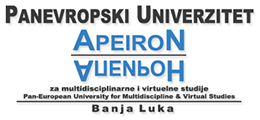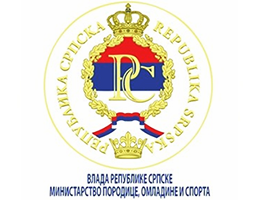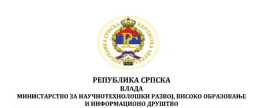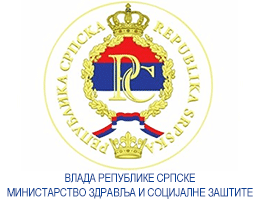Strategies for Developing Local Wisdom-Based Sport Tourism to Achieve Sustainable Development Goals (SDGs) in South Sulawesi Province
Volume 14, Issue 2 (2024)
Volume 14, Issue 2 (2024)
Strategies for Developing Local Wisdom-Based Sport Tourism to Achieve Sustainable Development Goals (SDGs) in South Sulawesi Province
Abstract:
This study explored the development strategies of sport tourism based on local wisdom in South Sulawesi
Province to achieve the Sustainable Development Goals (SDGs), particularly in poverty reduction. The SDGs, adopted
in Indonesia through Presidential Regulation No. 59 of 2015, prioritized poverty alleviation as a primary goal. This research
assessed the potential of sport tourism by leveraging the diversity of nature and local culture to enhance the rural
economy. South Sulawesi, rich in natural and cultural resources, offered significant potential for sport tourism. Activities
such as marathons at the Maros GeoPark, mountain biking in Malino Pine Forest, and jet ski festivals at Tanjung Bira
Beach attracted tourists and stimulated the local economy. However, the decline in tourist visits highlighted the need for
new strategies. A qualitative method was used to analyze the potential and obstacles in sport tourism development. The
results showed that sport tourism based on local wisdom could reduce poverty through job creation and increased income
from tourist spending. The elements of “something to see,” “something to do,” and “something to buy” in South Sulawesi
enhanced tourism appeal and the local economy. Challenges such as infrastructure, stakeholder coordination, and community
training needed to be addressed. This study suggested better traffic systems, effective communication, and the enhancement
of local human resource capacities. An inclusive approach in planning and managing tourist destinations was
expected to maximize economic benefits while preserving the local environment and culture, making sport tourism based
on local wisdom a sustainable development model for South Sulawesi.
Keywords:
Sport, Tourism, Development, Local wisdom.
Full Text:
References:
Ahmad, A. J., Hakim, L., Mustari, N., & Fatmawati, F. (2024). Strategi Pengembangan Sumber Daya Manusia Sektor Pariwisata Melalui Partisipasi
Masyarakat. Ganaya : Jurnal Ilmu Sosial Dan Humaniora, 7(1), Article 1. https://doi.org/10.37329/ganaya.v7i1.3113
Aji, S. P., & Kartono, D. T. (2022). Kebermanfaat Adanya Sustainable Development Goals (Sdgs). Journal of Social Research, 1(6), 507–512.
Amirya, M., & Irianto, G. (2023). Tantangan Implementasi Sustainable Development Goals (SGDS) Di Indonesia. Jurnal Ilmiah Akuntansi
Peradaban, 9(1), Article 1. https://doi.org/10.24252/jiap.v9i1.38916
BPS Indonesia. (2023). Profil Kemiskinan di Indonesia September 2020. Berita Resmi Statistik, 1(05), 1–16.
BPS Sulawesi Selatan. (2023). Jumlah kunjungan wisatawan di Provinsi Sulawesi Selatan. https://sulsel.bps.go.id/id/pressrelease/
2024/01/02/821/pada-bulan-november-2023-ada-1-132-kunjungan-wisman-ke-sulawesi-selatan.html
Eddyono, F. (2021). Pengelolaan Destinasi Pariwisata. uwais inspirasi indonesia.
Hidayat, S. K., Sundari, S., & Pakpahan, M. (2024). Evaluasi Kebijakan Pengelolaan Sumber Daya Alam Di Indonesia: Tantangan Dan Peluang
Untuk Masa Depan. Jurnal Manuhara: Pusat Penelitian Ilmu Manajemen Dan Bisnis, 2(2), 104–117.
Hidayatullah, F. A., & Suminar, T. (2021). Strategi Pemberdayaan Masyarakat Berbasis Potensi Lokal Candi Plaosan Melalui Program Desa
Wisata Untuk Kemandirian Ekonomi Di Desa Bugisan Kecamatan Prambanan Kabupaten Klaten. Lifelong Education Journal, 1(1),
1–11.
Jiménez-García, M., Ruiz-Chico, J., Peña-Sánchez, A. R., & López-Sánchez, J. A. (2020). A bibliometric analysis of sports tourism and sustainability
(2002–2019). Sustainability, 12(7), 2840.
K, L. P., Hidayat, A., & Husni, V. (2023). Peran Geopark Rinjani Lombok Sebagai Pilar Pariwisata Berkelanjutan Di Nusa Tenggara Barat.
Jurnal Ilmiah Hospitality, 11(2), Article 2. https://doi.org/10.47492/jih.v11i2.2266
Komalasari, K. (2023). Dampak isu-isu global dalam perkembangan pendidikan kewarganegaraan di Indonesia. Jurnal Ilmiah Mimbar Demokrasi,
22(2), 174–180.
Manurung, K., Basir-Cyio, M., Basri, H., & EFFENDY, E. (2019). The Development and Potential Evaluation of Indonesian Lore Lindu National
Park Ecotourism in Relation to the Economic Growth of the Surrounding Community. Journal of Environmental Managementand Tourism, 10(2), 366–373.
Miles, M., Huberman, A., & Saldana, J. (2019). Qualitative data analysis. Sage Publications. https://us.sagepub.com/en-us/nam/qualitativedata-
analysis/book246128
Mulyono, R. D. A. P., Rosa, D. V., Prasetyo, H., & Mahardiyanto, A. (2024). Mentoring Smart Cultural Tourism Berbasis Potensi Lokal Menuju
Kemandirian Ekonomi di Desa Klungkung Kabupaten Jember. Warta Pengabdian, 18(1), 70–88.
Natalia, A., & Maulidya, E. N. (2023). Aktualisasi Empat Pilar Sustainable Development Goals (SDGs) di Perdesaan Kecamatan Natar Kabupaten
Lampung Selatan. JIIP: Jurnal Ilmiah Ilmu Pemerintahan, 8(1), 21–41.
Paramitha, A. (2022). Analisis potensi wisata dan strategi pengembangan daya tarik wisata pantai blue lagoon bali: Analysis of tourism potential
and development strategy of blue lagoon beach tourism attraction. Jurnal Ilmiah Pariwisata Dan Bisnis, 1(1), 1–23.
Purwanti, E. (2024). Analisis Deskriptif Profil Kemiskinan Indonesia Berdasarkan Data BPS Tahun 2023. AKADEMIK: Jurnal Mahasiswa
Humanis, 4(1), 1–10.
Ridwanullah, M., Rahmawati, R., & Hernawan, D. (2021). Pemetaan Tata Kelola Pengembangan Pariwisata. Jurnal Governansi, 7(1), Article
Setiadi, M. B., & Pradana, G. W. (2022). Pemberdayaan Masyarakat Berbasis Potensi Lokal Melalui Program Desa Wisata Genilangit (Studi Di
Desa Wisata Genilangit Kecamatan Poncol Kabupaten Magetan). Publika, 881–894. https://doi.org/10.26740/publika.v10n4.p881-894
Surur, F., Sitorus, S. R., & Agusta, I. (2014). Pertimbangan Aspek sosial budaya dan kearifan lokal dalam pengembangan kawasan Danau
Tempe Provinsi Sulawesi Selatan. Tataloka, 16(3), 168–180.
Susanto, S. et al. (2022). Traditional Sport-Based Physical Education Learning Model in Character Improvement and Critical Thinking of
Elementary School Students. SPORTS SCIENCE AND HEALTH, 24(2), 165-172.
Susanto, S., Setyawan, H., García-Jiménez, J. V., Pavlovic, R., Nowak, A. M., & Susanto, N. (2024). Analysis of One-Hole Game Tools in
Developing Fine Motor Skills in Early Childhood. SPORTS SCIENCE AND HEALTH, 27(V), 135-139.
Susanto, S., Setyawan, H., Susanto, N., García-Jiménez, J. V., Latino, F., Tafuri, F., & Eken, Ö. (2024). The Influence of Modified One-Hole
Game Media in Improving Fine Motor Skills in Early Childhood. SPORTS SCIENCE AND HEALTH, 27(V), 151-156.
Susanto, S. (2024). The Effect of Using a Paralon Bow on the Archery Performance of Novice Athletes. Innovative: Journal Of Social Science
Research, 4(3), 11185-11197.
Syafira, D. D., & Triani, M. (2021). Kausalitas Infrastruktur Jalan, Urbanisasi dan Kesejahteraan masyarakat di Indonesia. Jurnal Kajian Ekonomi
Dan Pembangunan, 3(2), Article 2. https://doi.org/10.24036/jkep.v3i2.13603
Todaro, M. P., & Smith, S. C. (2006). Pembangunan Ekonomi Jilid 1 Edisi Kesembilan. Erlangga. Jakarta.
Widyaningsih, H., Yulianti, E., Hernawan, H., & Yusmawati, Y. (2020). The impact of sport tourism as a tourism sector analysis in Kepulauan
Seribu, Indonesia. 4th International Conference on Sport Science, Health, and Physical Education (ICSSHPE 2019), 50–52. https://
Yanuar, F., Kartini, D. S., & Akbar, I. (2023). Penerapan Dynamic Governance terhadap Tata Kelola Permukiman Akibat Dampak Urbanisasi
di Kota Depok Tahun 2022. Jurnal Pemerintahan Dan Politik, 8(3), 202–212.
Zhao, L., & Xia, X. (2020). Tourism and poverty reduction: Empirical evidence from China. Tourism Economics, 26(2), 233–256.






